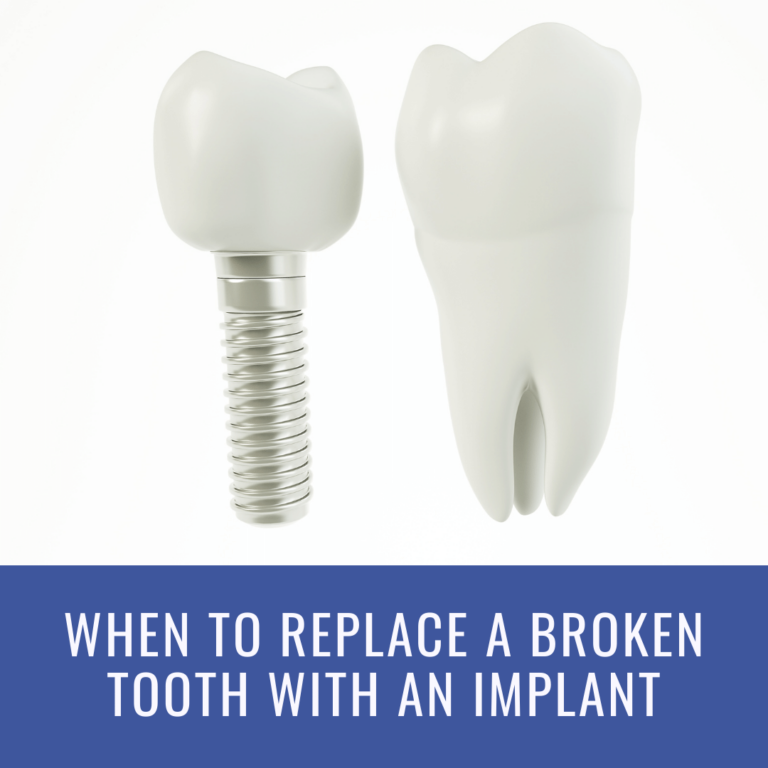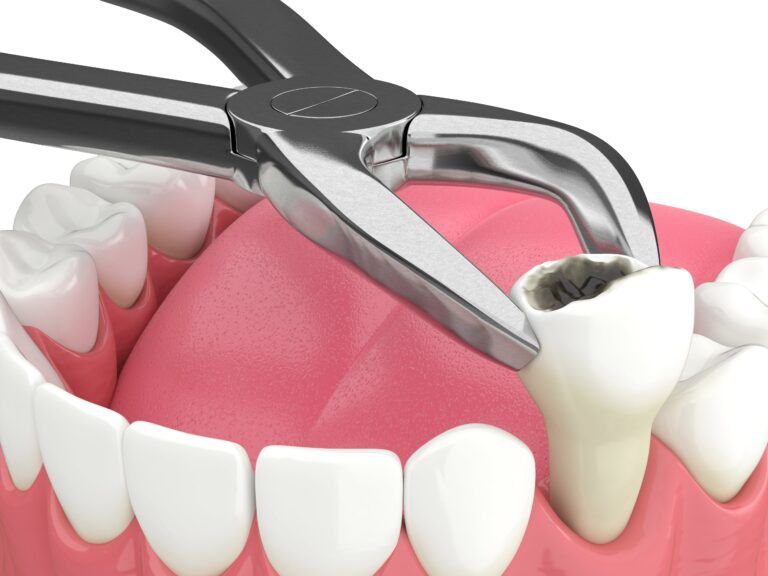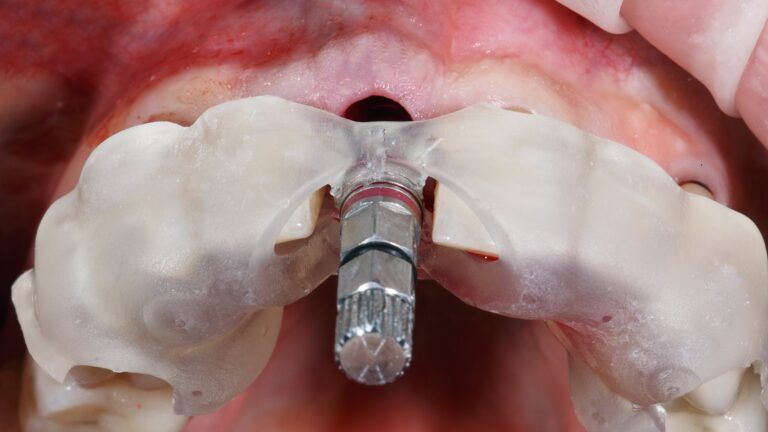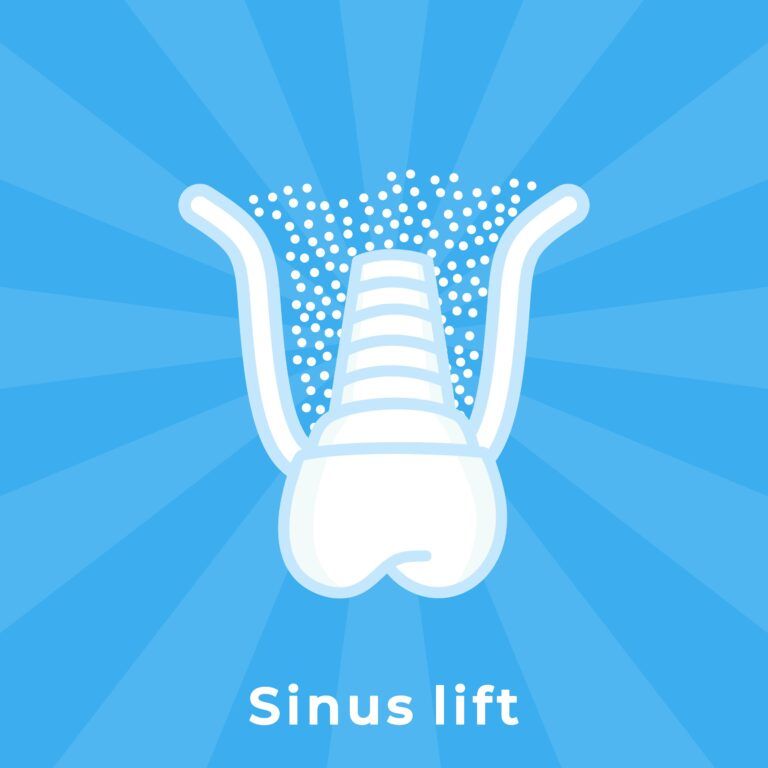If you have a tooth that is chipped or cracked, should you repair it or extract it? This is a question that many people face. In some cases, the tooth can be repaired with a filling or crown. However, if the damage is too extensive, the tooth may need to be extracted and replaced with a dental implant. In this blog post, we will explore the options for repairing a broken tooth and when an extraction may be a better option. We’ll also discuss what dental implants are and how they can be used to replace a broken tooth.
Despite the fact that teeth are exceptionally strong, they are still susceptible to damage. Teeth that already have damage or that have been partially decayed are more likely to become damaged, however even healthy teeth are at risk. Teeth can chip or crack as a result of:
- Biting down on something hard (ice, nuts, hard candies, etc.)
- Trauma to the face or mouth
- Grinding your teeth (bruxism)
- Using your teeth as tools
- Chewing on nails, pens, or other objects
- Having poor dental hygiene
When you have a chipped or cracked tooth, you may be wondering if you should get it repaired or extracted. In some cases, the damage is not severe enough to warrant an extraction. When it comes to repairing a broken tooth, there are several options available. A filling can be used to repair a small chip or crack. If the damage is more extensive, a crown may be necessary. In some cases, the tooth can even be repaired with bonding or veneers. However, if the damage is severe, the tooth may need to be extracted.
When should a tooth be extracted?
Generally speaking, your dentist will always try to preserve the natural tooth structure instead of extracting the tooth. However, there are cases when extracting the affected tooth is more beneficial than leaving it in place. There are several circumstances when an extraction may be necessary:
The tooth is infected:
If the tooth is infected, it may need to be extracted. This is because the infection can spread to other teeth and cause further damage. Damaged teeth can become infected if the damage is severe enough to allow bacteria to enter the inside of the tooth. When this happens, the dental pulp becomes inflamed and infected. In some cases, a root canal may be performed to save the tooth and prevent extraction. However, more severe infections usually result in an extraction to prevent the infection from spreading or causing additional complications.
There is overcrowding:
Sometimes teeth can become damaged if the opposing tooth constantly hits it at an odd angle. This can happen in cases where the bite is not aligned properly or if there are too many teeth for the size of the jaw. If there is not enough space in your mouth for all of your teeth, an extraction may be necessary. In these cases, however, the affected tooth is generally not replaced with an implant since there was little space available to start with.

The tooth is broken off at the gums:
There are also certain cases where the visible portion of the tooth may break entirely off, leaving only the root behind. If the tooth is broken off at the gum line, it will usually need to be extracted. This is because it can be difficult to clean the area and there is a risk of infection. Not to mention the fact that teeth broken off at the gums are just about impossible to restore. Instead, your dentist will likely recommend extracting the remaining tooth root and replacing it with an implant.
You have severe periodontal disease:
If you have periodontal disease, your gums may be damaged and your teeth may become loose. If you have a damaged tooth that is also loose, your dentist will likely opt to extract the affected tooth. However, you will need to receive treatment for periodontal disease prior to having dental implants placed.
Other restoration options have failed:
If other restoration options, such as bonding or a crown, have failed to repair the damaged tooth, then an extraction may be necessary. For example, if the tooth is severely decayed, there may not be enough healthy structure to support a dental crown. If a crown cannot be placed or it keeps falling off, your dentist will likely recommend extracting the tooth and replacing it with an implant.
Extracting a Broken Tooth

Extracting a tooth is a relatively simple procedure. The dentist will numbed the area and then use a tool to remove the tooth. In some cases, the dentist may need to make a small incision in order to remove the tooth. Once the tooth is removed, the area will be cleaned and a dental implant will be placed into the now empty socket.
Dental implants are an ideal option for replacing a missing tooth because they look and function just like natural teeth. A dental implant is a small titanium screw that is placed in the jawbone. Once the implant has healed and fused with the surrounding bone, a crown can be placed on top of it. In cases where a tooth is severely damaged, replacing it with a dental implant can effectively restore the function and appearance of the tooth better than other dental restoration options.
In Conclusion
In this blog post, we discussed when it may be necessary to extract a damaged tooth and replace it with an implant. While there are several options available for repairing broken teeth, if the damage is too extensive, the tooth may need to be extracted and replaced with a dental implant. Dental implants are a popular option for replacing missing teeth because they look and function just like natural teeth. If you think you may need an extraction or dental implant, contact your dentist to discuss your options. Our experienced team would be more than happy to help you restore your smile!

Irfan Atcha, DDS, DICOI, DADIA at New Teeth Chicago Dental in Chicago, Illinois is a board-certified general dentist and a nationally recognized expert in dental implants, cosmetic dentistry, and sedation dentistry. Dr. Atcha is now serving patients in Naples, Bonita Springs and SW FL area with All-on-4 implants, teeth-in-a-day, same day dental implants and the complex zygomatic dental implants for the no-jaw bone solution approach. To schedule a consultation please email Dr. Atcha at teethforyou@gmail.com.





